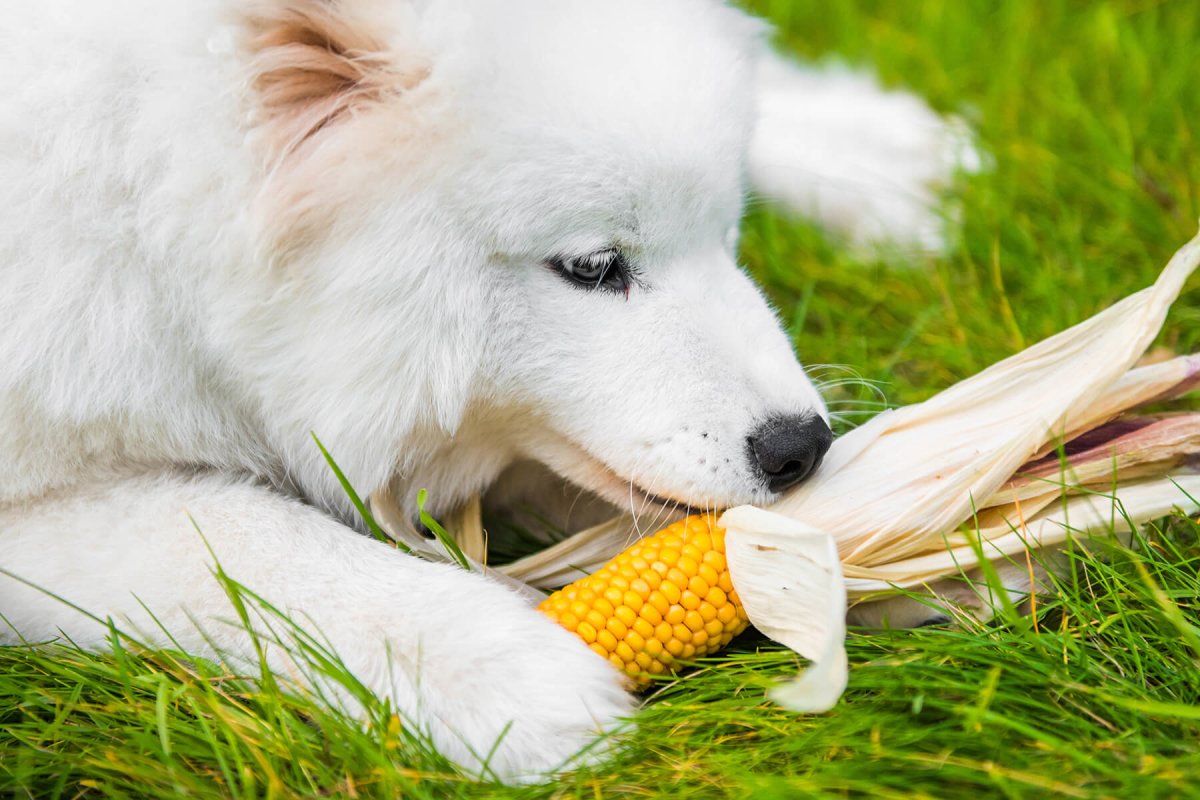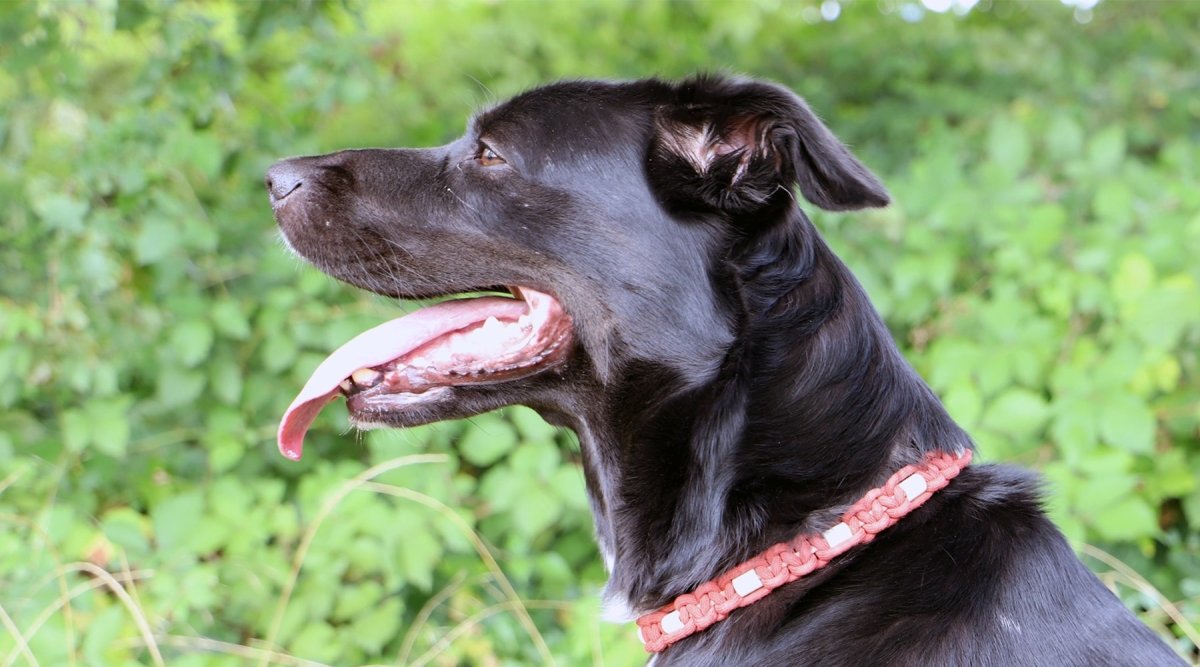We love our dogs and like to spoil them. But there are foods that are not always healthy for dogs or can even be dangerous. Are nuts one of them? In this article, we clarify the question: Can dogs eat nuts? Or should we rather not feed our dogs nuts?
Are nuts poisonous for dogs?
Nuts are generally a healthy snack alternative, but whether nuts are poisonous to dogs depends on the type of nut. Before you feed nuts to your dog, you should find out whether your dog is allergic to certain types of nuts. Try it out with a small crushed nut and wait for the reaction. As a rule, nothing can happen with small quantities. If you do not observe any unusual changes in your dog's behavior, you can increase the dosage next time.
If you want to feed your dog nuts, you should always use natural nuts - without salt or sugar and, above all, shelled. The quantity also makes a difference: nuts should only ever be fed to dogs in moderation. This is because most varieties are very high in calories and can promote obesity. In addition, nuts generally have a high phosphorus content, which can be particularly harmful for animals with kidney disease.
Also make sure that the pieces of nut are not too large, otherwise they will come out the same way at the back. It is best to grind or pulverize the nuts for dogs before feeding them.

Which nuts can dogs eat?
We have put together some types of nuts that healthy dogs can enjoy below:
Peanuts, particularly rich in minerals
Peanuts are not poisonous for dogs, but they are very high in fat and contain a lot of histamine, which can lead to allergies in some cases. The nutritious nut also contains minerals such as iron, phosphorus, potassium, calcium and the trace elements zinc, fluorine, copper and manganese.
However, peanuts should not be fed to dogs with heart or kidney disease. While the particularly high protein content has a negative effect on the kidneys, the fat and magnesium in the nuts also attack the heart.
The high-fat hazelnut
Hazelnuts are safe for dogs and provide your four-legged friend with plenty of protein, calcium, potassium and vitamins. Dogs really like this popular nut and generally tolerate it well. However, hazelnuts are also a type of nut that can trigger allergies in dogs. They are also particularly high in calories and promote obesity in four-legged friends. Therefore, high-fat nuts should only be fed to dogs in moderation.
Almonds for dogs
Almonds are also very high in calories and should only rarely be offered as a snack alternative to overweight dogs. As a rule, this nut has no negative effects on your four-legged friend's health, but instead provides him with polyunsaturated fatty acids, vitamin E and folic acid. If you want to feed your dog almonds, make sure you use sweet almonds, as bitter almonds are poisonous to dogs. They can even be life-threatening for your four-legged friend as they contain amygdalin, which is broken down into hydrocyanic acid during the digestive process.
Chestnuts for dogs
Chestnuts are not poisonous for dogs. On the contrary: they provide your pet with lots of important vitamin B (thiamine). The vitamin supports your dog's nervous system and psyche and is also essential for a vital coat and healthy skin. Chestnuts can be fed as a regular snack, but always peeled. This is because if your four-legged friend accidentally swallows the nut together with the shell, it can lead to an intestinal blockage.
Brazil nuts rich in calcium
Brazil nuts for dogs are a tasty snack for between meals. The nuts are non-toxic and contain up to 160 mg of calcium per 100 g. Calcium for dogs is essential for bone formation, healthy teeth and to support cell division, among other things. However, Brazil nuts are also a high-fat type of nut, so dogs should only eat them in moderation. If you want to cover your dog's calcium requirements in a natural way, you can use eggshell powder for dogs. This purely natural powder is a proven source of calcium and is part of your dog's balanced diet.
Danger of fungus with walnuts
Walnuts are generally a safe treat for your dog and can be fed to your dog occasionally. Walnuts contain a lot of polyunsaturated fatty acids, namely 47 g per 100 g. These popular nuts also provide dogs with potassium and many different vitamins.
However, be careful: walnuts and black walnuts, the North American relatives of the walnut, can be infested with a mold that develops the toxin roquefortin C. This toxin can cause allergic reactions in dogs. The toxin can trigger allergic reactions in dogs and humans and also have a neurotoxic effect, which can lead to muscle cramps. You should therefore only feed your dog ripe and dried nuts, and of course also eat them yourself.
Pistachios
Pistachios are also prone to mold if they are stored for too long. The oily pistachio provides an ideal breeding ground for the development of this strong toxin. It is also not easy to see with the naked eye whether the nuts are infested with mold, so pistachios pose a certain risk to both dogs and humans. However, the nut's ingredients are completely safe for dogs. They contain an exceptionally high amount of vitamin B6 and are particularly rich in protein. As an occasional snack, pistachios should be fed shelled and ground.
Beware of macadamia and nutmeg
Even a small dose of these nuts can be poisonous for dogs. Consumption leads to vomiting, fever and diarrhea, and the nervous system can also be affected.
In the case of macadamia nuts, just 2 g per kg/body weight can lead to symptoms of poisoning in dogs. Nutmegs are also critical for four-legged friends as they contain hallucinogens that can lead to nausea, weakness, muscle tremors, disorientation and even death.
Conclusion
Can dogs eat nuts? The answer depends largely on the type of nut. While some nuts such as hazelnuts or Brazil nuts can be eaten by dogs without any problems, other types of nuts should be avoided. But even with edible varieties for dogs, you should only feed small amounts, otherwise allergies can be promoted.



